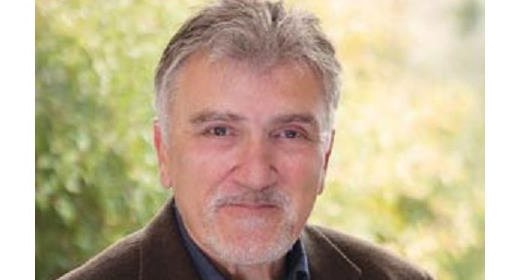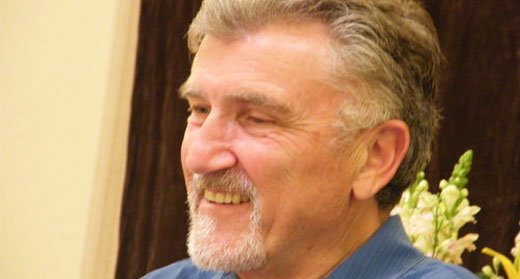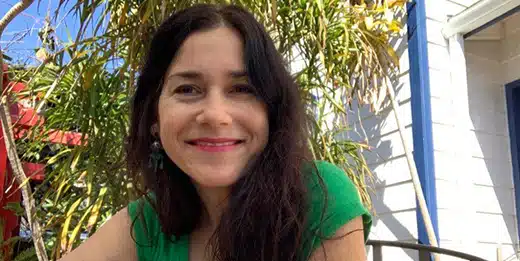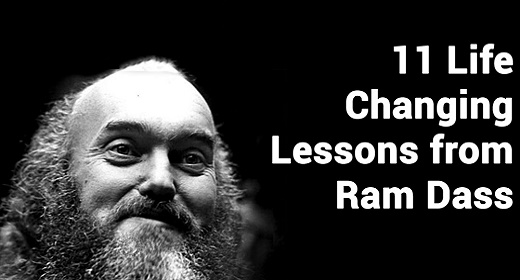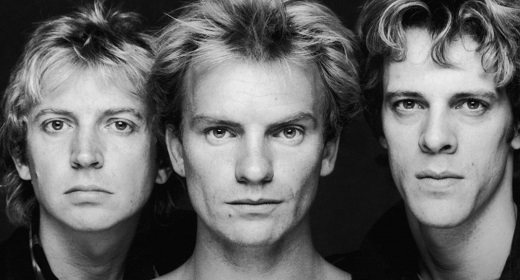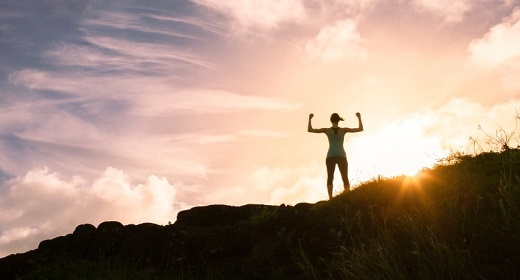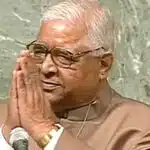Donna Quesada: I remember one of my own teachers saying, “When looking for a teacher, you want a teacher who’s been through the fire”
… who’s coming from a place of experience, not just lip service. You want someone who knows what it’s like, whatever it is.
Megan Larson: Completely.
Donna: I do agree with that completely and relate to it personally, as well. And it’s really nice to combine these approaches. And I suppose, that’s what you mean when you describe your holistic approach, in that you bring different elements from different traditions into your tool bag, so to speak.
Megan: Completely. And I think I feel so grateful along the way, that I’ve been exposed to many amazing teachers and especially my root teacher, to kind of, yeah… have a framework or an understanding of just how to be in life, and to just show up and kind of learn more about myself and just how to be in service. And I think that’s what I really love about the Tibetan tradition in particular, that it’s so based upon loving, kindness and compassion.
Donna: Yeah.
Megan: And I feel like for me, that’s just been such a rooting force, and it’s provided a lot of strength to… yeah, to be able to show up.
Donna: I was thinking about this business of bringing different tools to the plate. What do you think has been the missing ingredient? Where have we gone wrong? Maybe in the past… I think about talk therapy, and people make jokes about being in therapy for 20 years and not getting anywhere. What has been the missing ingredient? From your experience so far, what is the one piece that has made all the difference in the world?
Megan: It’s a great question. I think for me, it’s been this piece of, that compassion and loving-kindness element, and how that is something that I find to be the most fundamentally healing for people is that coming home to themselves, and to finding more space for acceptance. And instead of, just this analytical talking about problems or just looping on and on and on, it’s that coming back and seeing those disowned parts and how can we hold them and integrate them here and now, so that they are welcome and that they’re okay, and there’s nothing wrong with them and that they have a voice and that they can emerge. And that feels really fundamental for me, and I think it’s that piece we talked about, like personally having that happen and then realizing just the healing potency for oneself and then wanting to share it with others.
Donna: I guess it’s similar to what we talk about in self-help circles, when we call it “self-love.” And there’s been so much talk about self-love in the last few years, books about it as key to the healing process. I think that we’re talking about that, just in a different language. And why is that so important?
Megan: Well, I think it affects all of our relationships. It’s like, if that fundamental relationship isn’t respected… and yeah, and held with care…. it’s hard then to be in relationship with others in the world. It just makes it more challenging. And one of my teachers in the play therapy world… this amazing woman who I’ve consulted with for a while now…. and whenever I have a moment where I get stuck, or I just need to bounce something off of her., she always reminds me that in order for there to be compassion in the relationship, one has to hold it for oneself, which is so true. So, I think it just ripples out and it affects all aspects of life… if that fundamental relationship isn’t respected.
Donna: Yeah. It seems that if it’s not there, then we’re coming from a place of codependence or neediness.
Megan: Completely, and then we’re looking for everything in the external environment to validate.
Donna: Yeah.
Megan: Which gets a little tricky.
Donna: Recipe for constant torment.
Megan: Yeah, exactly… looking for validation outside.
Donna: And if you could give the younger Megan of 20 years ago, a piece of advice, what would it be?
Megan: That’s a really good question. What would it be? Ease up on yourself. Don’t be so hard on yourself. Yeah. Be kinder to yourself. You’re so hard on yourself. You don’t need to be.
Donna: Yeah.
Megan: Something like that.
Donna: And now what is your mission in this lifetime if you had to summarize it?
Megan: My mission in this lifetime is to help others. However I can.
Donna: Yeah.
Megan: That’s really all that I care about, is just to be of service and be a benefit, and my work with children, I really value. I feel like they’re such tremendous teachers to me. I learned so much from them and I think it’s really to celebrate their gifts, to continue to just hold space and to also help their parents when they… they need to remind themselves of the gifts that their child has brought to this world.
Donna: Yeah.
Megan: Yeah.
Donna: What does it mean to heal? What you’re really doing is facilitating the healing process. What is it to heal, from your point of view?
Megan: I think it’s to come into connection with self, with nature.
Donna: Yeah.
Megan: With life.
Donna: Yeah. And do you think that there’s a process to healing and awakening; are there stages to it? And what do those stages look like? Or can it happen suddenly?
Megan: I think all of it. Yeah. I think it can happen suddenly.
Donna: In either way.
Megan: I think there are stages. I mean, I think about my own journey, definitely stages. It’s a process. It’s not linear. And I think for every individual, it shows up differently. And in my work with kids, there are ways to track and see what’s changing. But I also have to be clued into those changes as well, because then I could miss something. It’s like… I think also, just to always hold that lens off, what we talked about earlier, nothing is fixed. Nothing is solid. Things are constantly changing and moving… to always hold that outlook when working with people, that just because something is presenting in this moment, doesn’t mean it’s going to be presenting in the same way tomorrow… that there’s always constant change.
Donna: That’s a really good point. And, of course, we talked about impermanence, but I think that that’s a very valuable reminder. We experience a rough moment, a challenging moment, a fear, a moment of panic, whatever it may be. And then we develop a hang up around it, but to remember that it might not happen that way the next time you try it. That can be a really important thing to remember.
Megan: Totally, because we’re showing up differently. And I think that’s an empowerment, too.
Donna: Yeah.
Megan: And to see that we’re able to navigate, or we’re able to be with, or hold a challenging experience. Our confidence then grows, like…
I got this. Like… I can be with this. So, we’re showing up differently.
Donna: Yeah. There’s something that we also like to talk about on Awaken, this question about the dominance of the patriarchal world view, and it’s kind of a heavy question, but I think that it also plays a role in the world of psychotherapy… and this isn’t my field, but when I think about the history of psychotherapy, it was very masculine, you know, this kind of Freudian picture, and even the Jungian theories, and it was all very masculine. It’s how all of academia was. How do you think that has shaped our approach and do you think that that was a skewed approach? I daresay, a damaging approach?
Megan: Yeah. It’s definitely been something I’ve contemplated over time, and I think from all of that, there’s lessons and there’s gifts and there’s points to take away, but you’re right. I think that… that more analytical, I think of it as a more left brain kind of pathologizing, or a dysfunction… looking for the dysfunction. It’s like, if you look for the dysfunction, you’re going to find it. So, we need to kind of shift our way of what we’re looking for. And I think that that feels much more feminine to me, to kind of, open more into an accepting kind of view that’s changing, and not so rigid and fixed. It feels different…
Donna: Yeah, that heart-centered approach is more feminine.
Megan: It’s more feminine, completely.
Donna: And it’s also less likely to couch the challenge in terms of it being a pathology.
Megan: Right. It’s a reframe because it’s like, then if we’re looking at it as… this is just something that’s happening because of causes, because of maybe unmet needs or because of previous experiences. And that’s why I was talking about Gabor Maté’s work a little bit. I love just even how he speaks about trauma. It’s like, he says, trauma is not what happened to us, but rather what happened inside of us, as a result of our experience, which, thank goodness because from that…
Donna: Could you elaborate on that a little bit? What is he really saying there?
Megan: He’s saying that we’re not our stories basically, and that if we were our stories, that’s pretty heavy. When you think about things… atrocities that human beings have gone through since the beginning of time, and that feels very limited. That feels like, if something terrible happens, then we’re bound by that, and we are going to always be traumatized, and we’re never going to be able to move through it. Or we’re never going to be able to heal. But if it’s more the approach of looking at it and that happened… and that was really hard and it’s a different orientation again.
Donna: And I’m sorry for interrupting, but to put an example to it… Let’s say… I’m sure you deal with children who’ve come from abusive situations. So, what would rewriting that story look like?
Megan: Having the opportunity for them to share their story and to have it held in a much different way.
Donna: So it’s not who they are?
Megan: Yes.
Donna: It’s more… the obstacle course of life, and we find our way around this challenge, this obstacle and off we go.
Megan: Yeah. And sometimes it’s really hard, and sometimes we get thrown off balance, and then we come back, and we find our center and we are able to navigate it, but yeah, it’s not this linear process.
Donna: It’s a more compassionate, feminine approach.
Megan: Yeah.
Donna: … that isn’t so quick to name it as a “sickness.”
Megan: Totally, completely.
Donna: It’s almost like this path we have to go through. I remember when I was growing up. We were learning how to regard physical handicaps with compassion and that was kind of all the talk when I was growing up and now, we’re doing the same thing with psychological challenges. We’re learning not to stare. And we’re learning to have compassion. And we’re a little slow, I suppose, as a species.
Megan: Yeah. I would agree.
Donna: It’s like, this is a bit of a digression… But in our last few minutes together, I’m thinking about the world and the state of affairs of this world, as of late, and this is coming up in all of my conversations with people lately. And everyone I talked to seems to agree that the world feels different these days. There are so many scary things happening… from what’s going on in Ukraine… And of course, the pandemic, which is old news now, but not really. And now this business with China and our own country, and the challenges that we’ve been going through politically, in our country. It just seems like there’s this… it’s like a bunch of sand has been kicked up, and the world feels so unsafe. Do you feel that?
Megan: I do, and I don’t, I think in some ways, yes, of course. And then I kind of come back to what is my perception of my reality. And how is that impacting my lens. For some reason, when you were talking, and I hope I used the right word to say what I’m about to say here, but it’s from one of my teachers. And he says that this world, that this realm, this human realm, is the Sahaloka and it’s for the courageous ones. And I think of that all the time. That gives me so much strength to realize that we’re here for a reason and that, yes, there’s always been turbulence and there’s always been challenges and it’s not a utopia, in terms of… like, love and light everywhere all the time. There’s going to be challenge. There’s going to be difficulties. And so for me, personally, I reflect on that a lot as a way to, yeah, find some rooting.
Donna: Does it help you to remain hopeful?
Megan: Yes, completely. Absolutely. From that the hope.
Donna: And how do we balance our individual awakening and healing with that collective call to action, if you will?
Megan: I think it starts with each of us and as that happens, we influence each other. I feel like so much of my life and my path is the blessings of my teachers and just coming into contact with them in this life and I feel like it’s that. It’s just these lights that are all over the place and they sync up and we influence each other, and we all are that. I really believe that. I just think that it has remained dormant, for whatever reason. But I think as each person starts to awaken, that influences the collective.
Donna: And is there anything that I haven’t asked that I should have asked? Or is there anything else you’d like to share with us?
Megan: No, I’m so thankful. Thank you for having me here. I’ve, so enjoyed our conversation, and yeah, I love reading your interviews and just, I’m really glad that I get to be a part of it today. So, thank you for having me.
Donna: Well, thank you, and thank you for being a light, a force of light, for those who are on a healing journey.
Megan: Thank you.
Donna: Because the children are our next generation.
Megan: Yeah.
Donna: And so the role that you play in helping them to wake up is going to shape our world, and so thank you.
Megan: I’m really grateful. They give me an opportunity to work on myself. So, I’m grateful for that.
Donna: I believe we interviewed one of your teachers recently.
Megan: Yes, you did. I so enjoyed that interview.
Donna: The Llama
Megan: Yes. That was a wonderful interview.
Donna: Just a darling and sweet man. And we share some of the same friends, Ed and Deb.
Megan: Yes! Totally.
Donna: So, we’re grateful to have you be a part of the Awaken community, so again, thank you Megan.
Megan: Oh, thank you so much Donna. So wonderful to be with you and hope to see you again soon.
Donna: Thank you, Megan.
Megan: Thank you. Bye.
Read and Watch Part 1 Here: Awaken Interviews Megan Larson Pt 1 – Leading Through the Heart Instead of Through the Intellect
Read and Watch Part 2 Here: Awaken Interviews Megan Larson Pt 2 – Maybe It’s Nature Deficit Disorder

